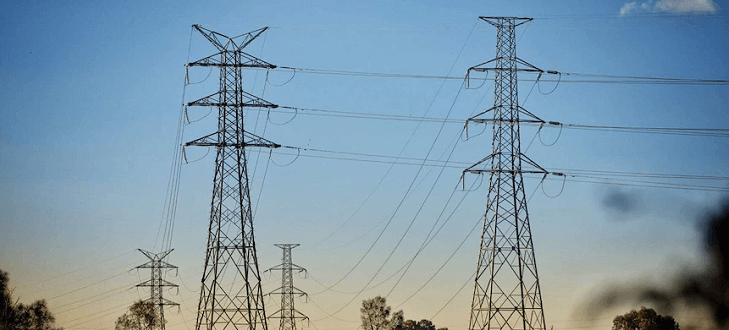Households on Australia’s east coast could see their power bills jump by hundreds of dollars a year if they are forced to pay coal and gas plants to keep running, a new report warns.
Key points:
- The Energy Security Board has recommended paying ageing power plants to remain open
- A new report warns the cost will be borne by consumers
- It estimates household power bills could face charges more than double the carbon price
The Institute for Energy Economics and Financial Analysis (IEEFA), and Green Energy Markets, have released a report warning households could face power bills of $182 to $430 more a year if a new proposal goes ahead.
They say those charges would far exceed the impact of the carbon price on power bills.
Their report criticises a proposal by the Energy Security Board (ESB) to introduce a “capacity payment” to the National Electricity Market.
The National Electricity Market (NEM) spans Australia’s eastern and south-eastern coasts, connecting five states (and the Australian Capital Territory) with electricity via thousands of kilometres of transmission lines.
The ESB says it is concerned about the speed with which renewable energy providers are entering the electricity network.
It has recommended paying ageing power plants to stay open — even if they’re not providing power — in case they’re needed during extreme demand peaks in coming years.
It said such payments would ensure the system had capacity to meet any demand, and avoid blackouts, without suffering from the sudden withdrawal of ageing coal plants as the network evolved towards lower emissions.
However, Johanna Bowyer, report co-author and IEEFA electricity analyst, says the ESB’s proposal would see consumers paying extra money to bail out ageing power generators for little benefit.
“The ESB’s new proposal will require electricity consumers to pay primarily conventional generators such as coal and gas plants for what they could produce if the plant was operating at its full level of capacity, regardless of whether or not, or how often, the generator uses all of its capacity to produce electricity,” Ms Bowyer said.
Verrender: Truth on energy
Much of the debate about our future power generation has become mired in political point scoring and simplistic arguments designed to inflame and outrage, writes Ian Verrender.
“While it is true that several coal power plants are facing financial difficulties, our analysis finds that reliability is not at threat by the level of likely coal power plant exits over the next 10 years.
“Thanks in part to actions of the federal government, there is a flood of dispatchable capacity entering the NEM. This covers a range of controllable sources of power from hydro to batteries, bioenergy, gas and even some small coal power plant upgrades.”
Report co-author, Tristan Edis of Green Energy Markets, says the grid is in a very different situation to when Hazelwood was shut down in 2017.
“From 2017 to 2027, almost 6,500 megawatts of dispatchable power project capacity will be added to the grid,” Mr Edis said.
“To put this into perspective, this is almost double the capacity that will be lost from the next three coal power stations due to close after 2027 — Yallourn, Callide B and Vales Point B.
“This means that all states across the NEM have enough power capacity for the next decade to meet the strict reliability standard of satisfying more than 99.998 per cent of demand.
“There are also thousands of megawatts of further battery projects in development which could be committed to construction if required,” he said.
What are the current rules?
Under current rules, power plants are paid for the power they produce which is used by consumers.
However, when renewable energy generators (such as wind and solar) provide large amounts of energy to the system, ageing power plants (such as coal and gas) can run at a loss, threatening their viability.
The ESB has therefore recommended introducing a “capacity payment” to the market, which would see energy retailers paying additional money to conventional power plants based on the size of the installed capacity of their generators, rather than the power they actually provide.
Federal Energy Minister Angus Taylor has accepted the logic of the ESB’s recommendation.
The Energy Security Board was created after South Australia’s state-wide blackout in 2016, following a recommendation by the Finkel Review into the security of the National Electricity Market.
Analysis of potential impact
However, to estimate the potential impact the plan could have on household power bills, IEEFA has looked at the “capacity market prices” faced by households in Western Australia’s electricity market.
According to its analysis, if households on Australia’s east coast faced similar prices, the cost of power bills would rise by between $2.9 billion to $6.9 billion every year.
“We found households in the NEM would see their electricity bills increase anywhere between $182 and $430 a year,” Ms Bower said.
“By way of comparison, the cost increase by New South Wales, Victorian and Queensland consumers from the carbon price was between $112 to $150.
“Based on the Western Australian capacity payments experience, consumers could be facing a new charge which is potentially more than double that of the carbon price.”
The 22-page report, Energy Security Board’s Capacity Payment: Burden on Households, was released on Friday.
Contested space
The “capacity payment” proposal has been welcomed by some players in the energy space, and opposed by others.
Major energy consumer representative groups such as the Energy Users Association of Australia and the Aluminium Council do not support the proposal.
But large generators say the plan is necessary to keep ageing power plants viable and the power supply stable as the network slowly transitions to renewable energy.
They say sudden withdrawals of ageing power plants could threaten network’s ability to provide uninterrupted power through the day.
The ESB’s recommendation is sitting with Mr Taylor, and state energy ministers are also considering it.
 © 2020 Australian Broadcasting Corporation. All rights reserved.
© 2020 Australian Broadcasting Corporation. All rights reserved.
ABC Content Disclaimer

